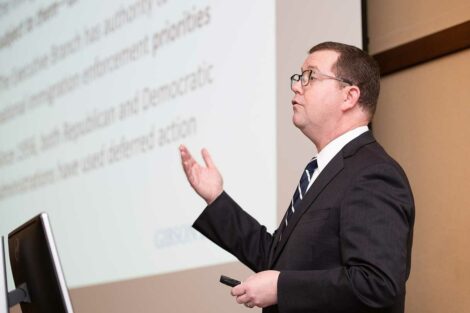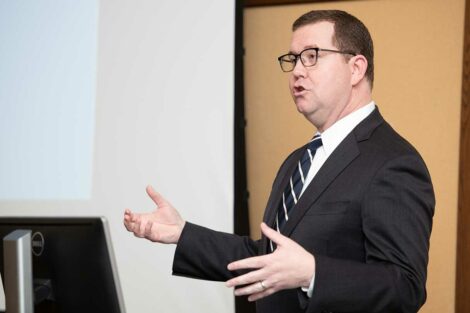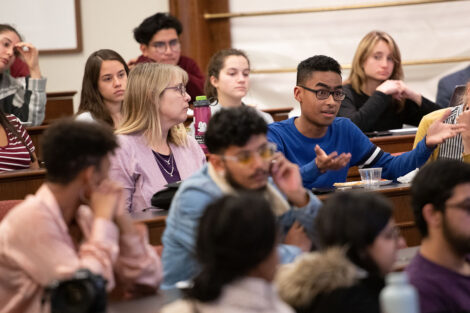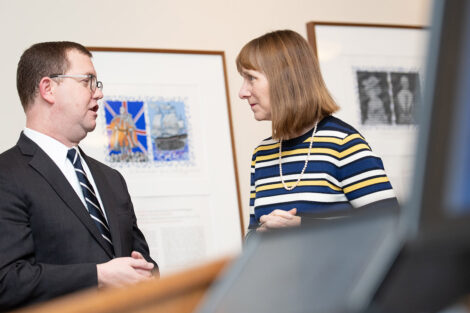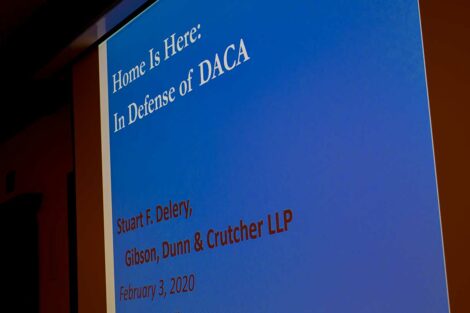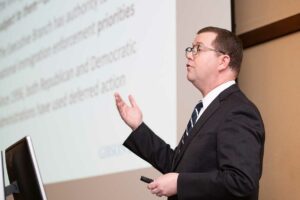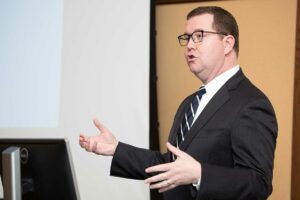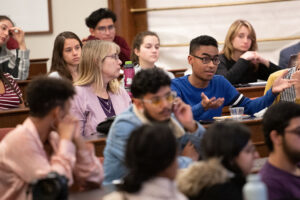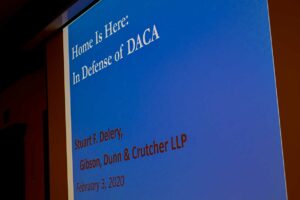Notice of Online Archive
This page is no longer being updated and remains online for informational and historical purposes only. The information is accurate as of the last page update.
For questions about page contents, contact the Communications Division.
Lead lawyer in Supreme Court case speaks on campus
By Liza Thompson ’21
Students and professors filled Kirby Hall of Civil Rights auditorium recently to hear Stuart Delery P’23 speak about the Deferred Action for Childhood Arrivals (DACA) case that is before the Supreme Court.
Delery was a lead lawyer for a case in which DACA recipients, states, and other organizations challenged the Trump administration’s move to end the program. He is a litigation partner at the Washington, D.C., office of Gibson Dunn.
Here are five takeaways from Delery’s talk:
- The DACA program was implemented under the Obama administration to allow undocumented children/young adults who came into the United States as children to apply for protection from deportation. This group was called the “dreamers” by then-President Barack Obama. DACA allowed them to study, live, and work in America. Delery shared a quote from Obama describing the children as Americans in their hearts and minds.
- DACA requires recipients to go through background checks and be students, in the military, or contributing to the country in another way. The program promised that the children would not be removed from the country if they came forward and applied to the program. Delery shared a quote from Luis Cortes, a DACA recipient who was a co-counsel in the Supreme Court case: “When you finally get your identity it’s something I have never experienced. Since then, I feel so much more confident in my identity and the fact that I will not be deported.”
- In September 2017, there was a rescission of DACA by the Department of Homeland Security without any policy discussion based on a conclusion by the U.S. Attorney General that DACA was unlawful. The termination of DACA was immediately challenged in nine cases.
- After victories in lower courts, challenges to the rescission of DACA went to the U.S. Supreme Court. It packaged the original nine cases into one. The DACA recipient plaintiffs had a variety of backgrounds: teachers, lawyers, medical school students, and parents.
- During the hearing Nov. 12, 2019, Delery’s law firm colleague, Theodore Olson, argued that the Trump administration did not have to end DACA. The administration had decided to terminate the program, claiming it was unlawful. But Supreme Court Justice Ruth Bader Ginsberg suggested that there was nothing illegal about DACA. While the court case was argued, protestors crowded streets outside and watched DACA plaintiffs and other DACA recipients descend the steps of the U.S. Supreme Court holding hands.
Delery shared a quote from Justice Sonia Sotomayor during the case: “This is not about the law; this is about our choice to destroy lives.”
However, he said the DACA case is a much more complicated matter. It is examining which branch of the government has the authority to make the decision as to whether these immigrants can stay in the country. As Delery said to conclude his lecture, with arguments before the Supreme Court concluded, “Now we wait.”
The talk was sponsored by the Office of the President and Office of Intercultural Development.
